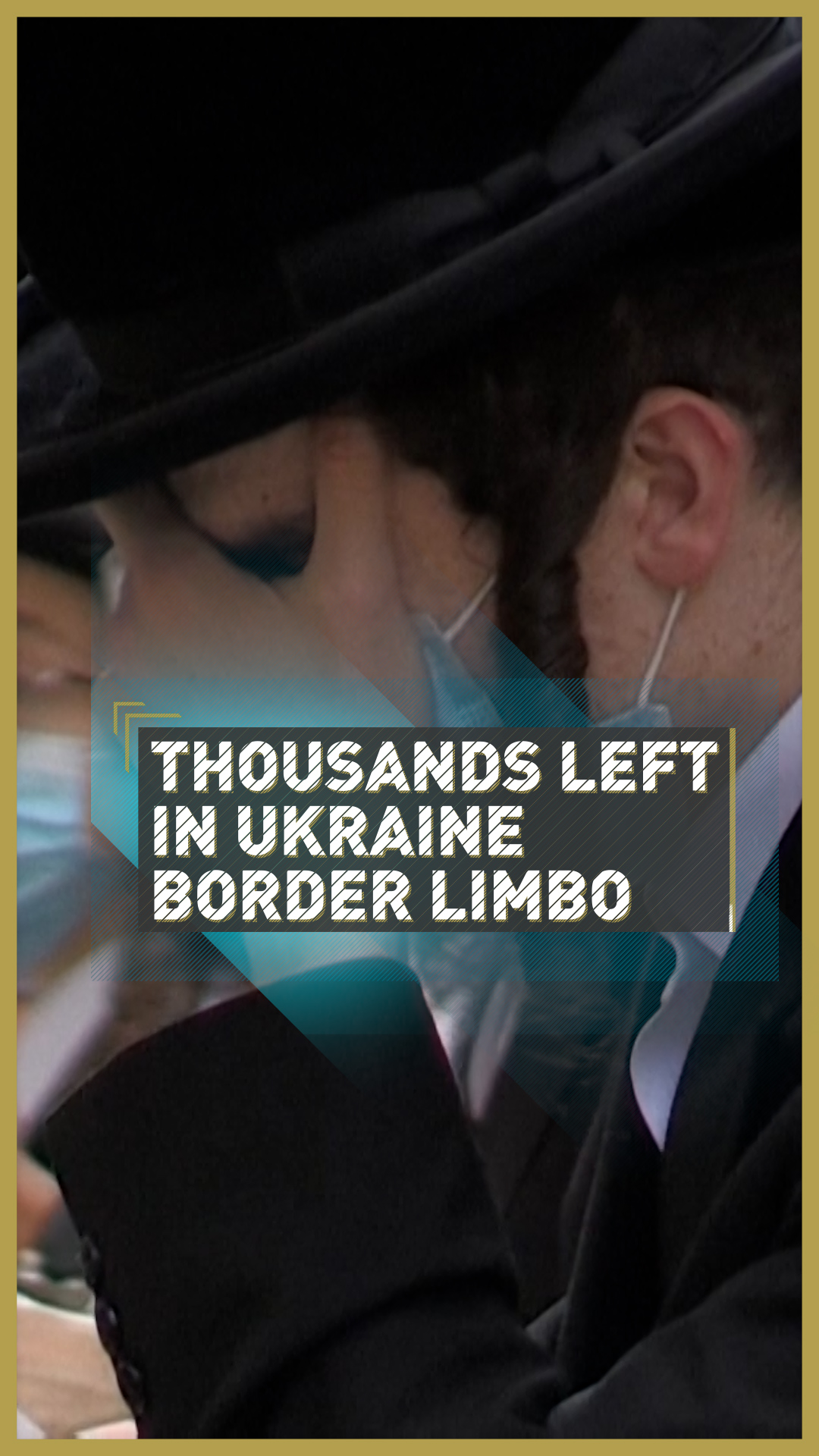01:57

Every year, the sleepy town of Uman in central Ukraine is transformed as tens of thousands of Hasidic pilgrims make their way there for Jewish New Year celebrations.
However, this year's pilgrimage to the Uman tomb of Rabbi Nahman, founder of the Breslov Hasidic movement, has been heavily disrupted by the COVID-19 pandemic.
Many believers were forced to break off their journey hundreds of kilometres away from the site as they were blocked from crossing Ukraine's border with Belarus.

Ahead of the Jewish New Year celebrations, Hasidic pilgrims wanting to get to the Ukrainian town of Uman were left stranded between the border crossings of Belarus and Ukraine. /TUT.BY/AFP
Ahead of the Jewish New Year celebrations, Hasidic pilgrims wanting to get to the Ukrainian town of Uman were left stranded between the border crossings of Belarus and Ukraine. /TUT.BY/AFP
Kiev closed its doors to foreign nationals in August to prevent a further spike in infections, with the decision leaving more than 1,000 pilgrims in limbo between frontier checkpoints.
Several thousand managed to enter Ukraine before the ban for the festivities that run between 18 and 20 September.
"We are very afraid of the coronavirus. But we are supported by our faith," 43-year-old Uman resident Jonathan Cohen said.
Those who arrived in Uman early criticized the decision to stop their fellow travellers from reaching their destination.
"We think everything possible should be done to allow them to come here," said Mota Frank, who had travelled from Jerusalem.
But Ukraine has refused to grant them passage, accusing Belarus of giving the travellers false hope that they could potentially enter.
In case you missed it:
• Ground-breaking DNA study busts age-old myths about Vikings
• 'Disaster' in the Danube as the river continues to be polluted
• Rare gems exhibition shines in Paris
Pandemic precautions
Although tensions broke out at the border, by Friday, nearly everyone had left the crossing points, according to Ukraine and Belarus guards.
Uman mayor Oleksandr Tsebriy said he camped outside President Volodymyr Zelensky's office in Kiev prior to the festival in a bid to persuade him to call off the pilgrimage this year.
Despite Tsebriy expressing sympathy for those affected, his office said the Ukrainian authorities had "reacted too late" by not canceling the event altogether.

Each believer entering Rabbi Nahman's tomb had their temperatures checked and inside the shrine a stone that pilgrims traditionally kiss was wiped down with disinfectant before each worshipper approached it. /Genya Savilov/AFP
Each believer entering Rabbi Nahman's tomb had their temperatures checked and inside the shrine a stone that pilgrims traditionally kiss was wiped down with disinfectant before each worshipper approached it. /Genya Savilov/AFP
Strict measures were maintained to stop the spread of the virus during the pilgrimage rituals.
Everyone had their temperatures checked and inside the shrine, a stone that pilgrims traditionally kiss was wiped down with disinfectant before each worshipper approached it.
However, after mandatory testing, it was reported that among the pilgrims, there were 10 coronavirus-positive cases.
Despite weathering the pandemic comparatively well during Europe's peak in March, Ukraine's numbers have been rising in recent months.
On Thursday, it registered a record increase in new infections with the total number of cases climbing steadily to above 169,000, with more than 3,000 fatalities.
Source(s): AFP